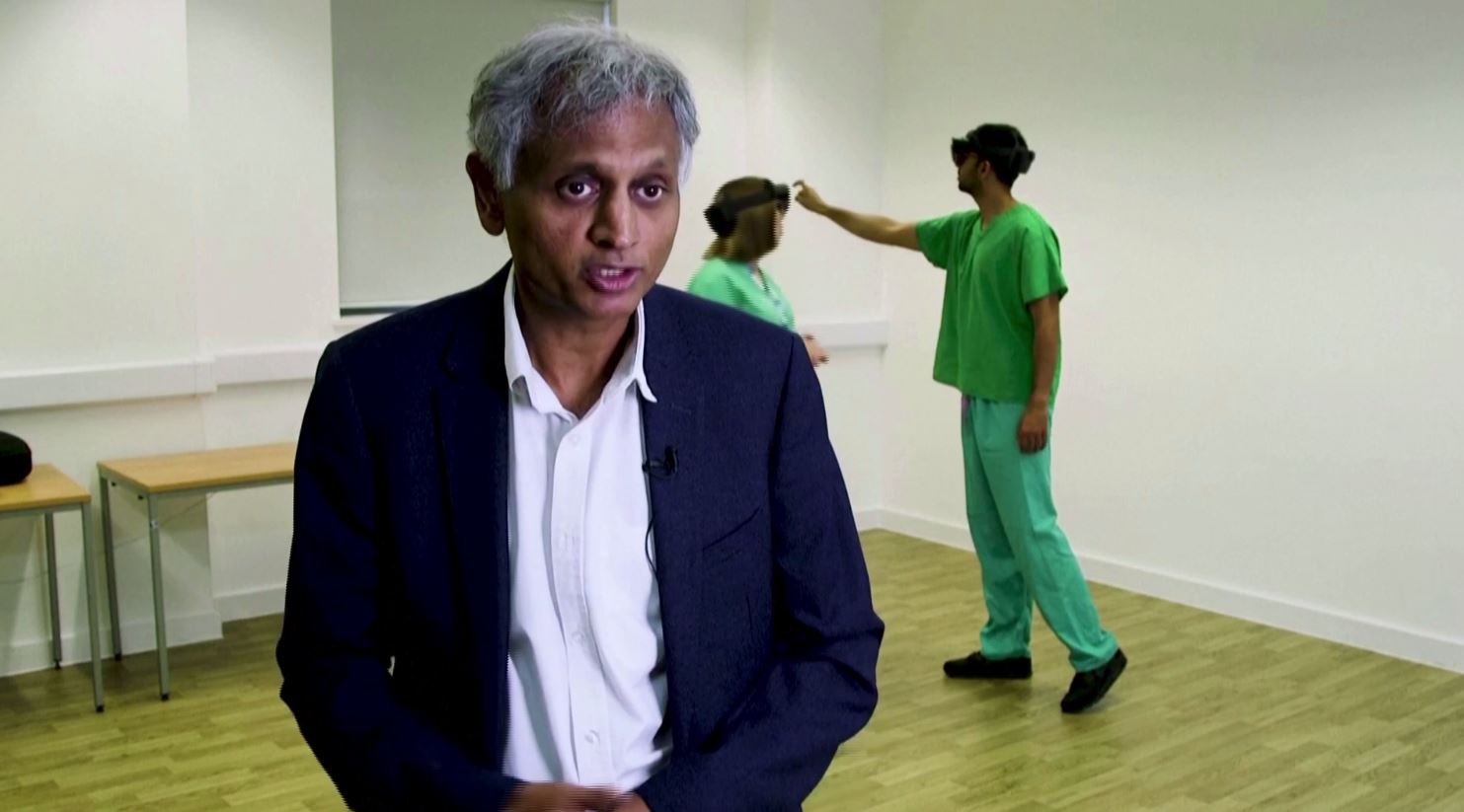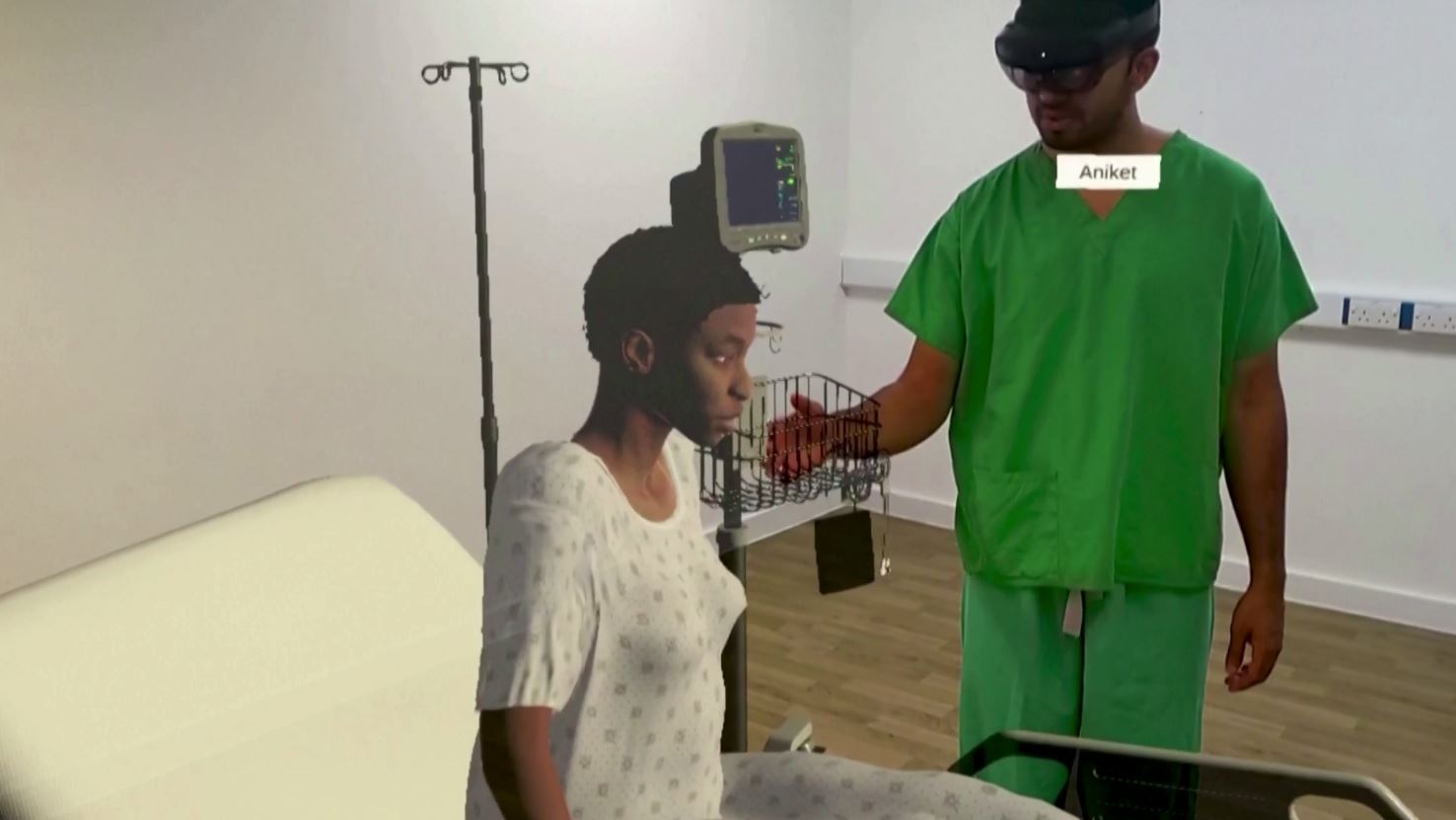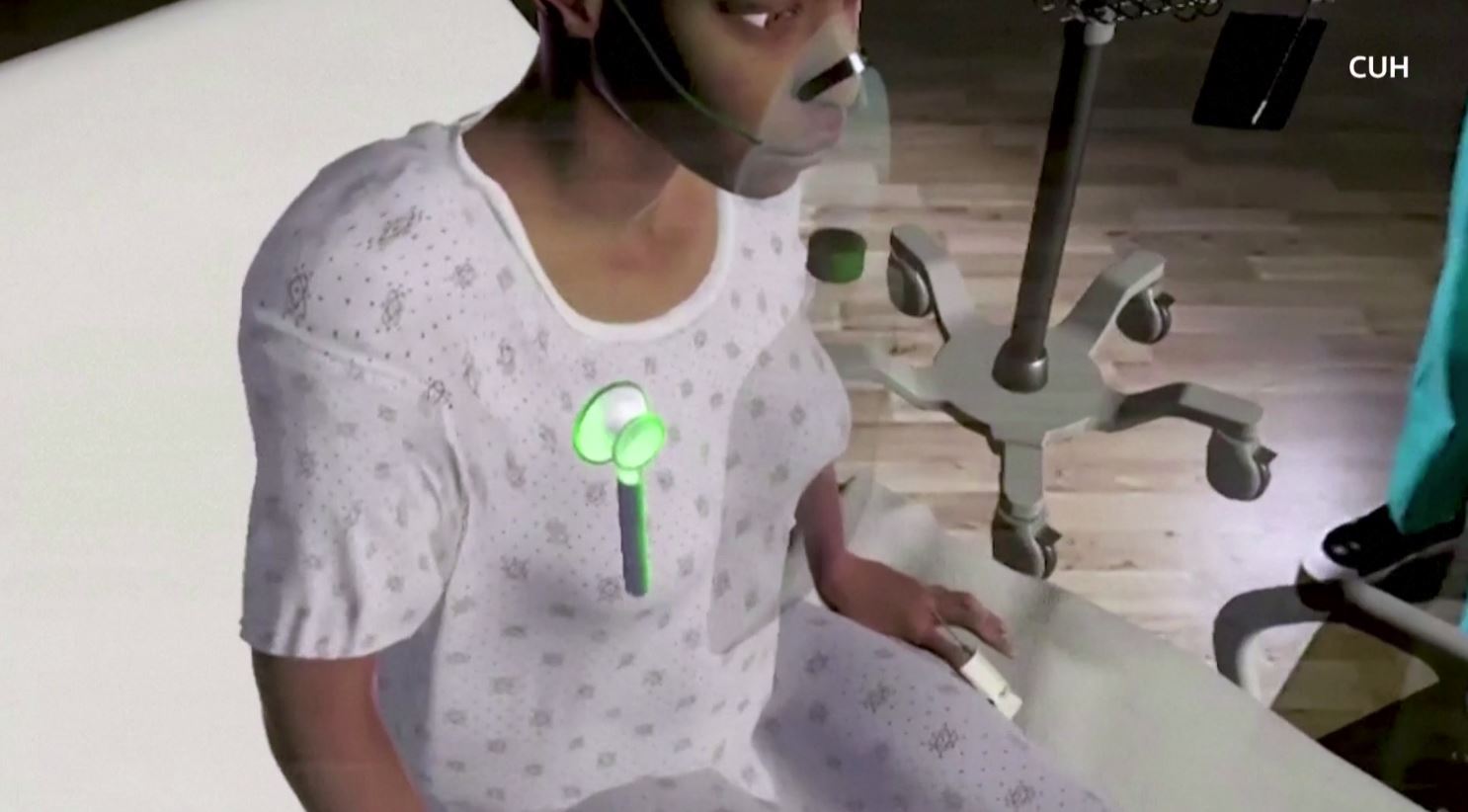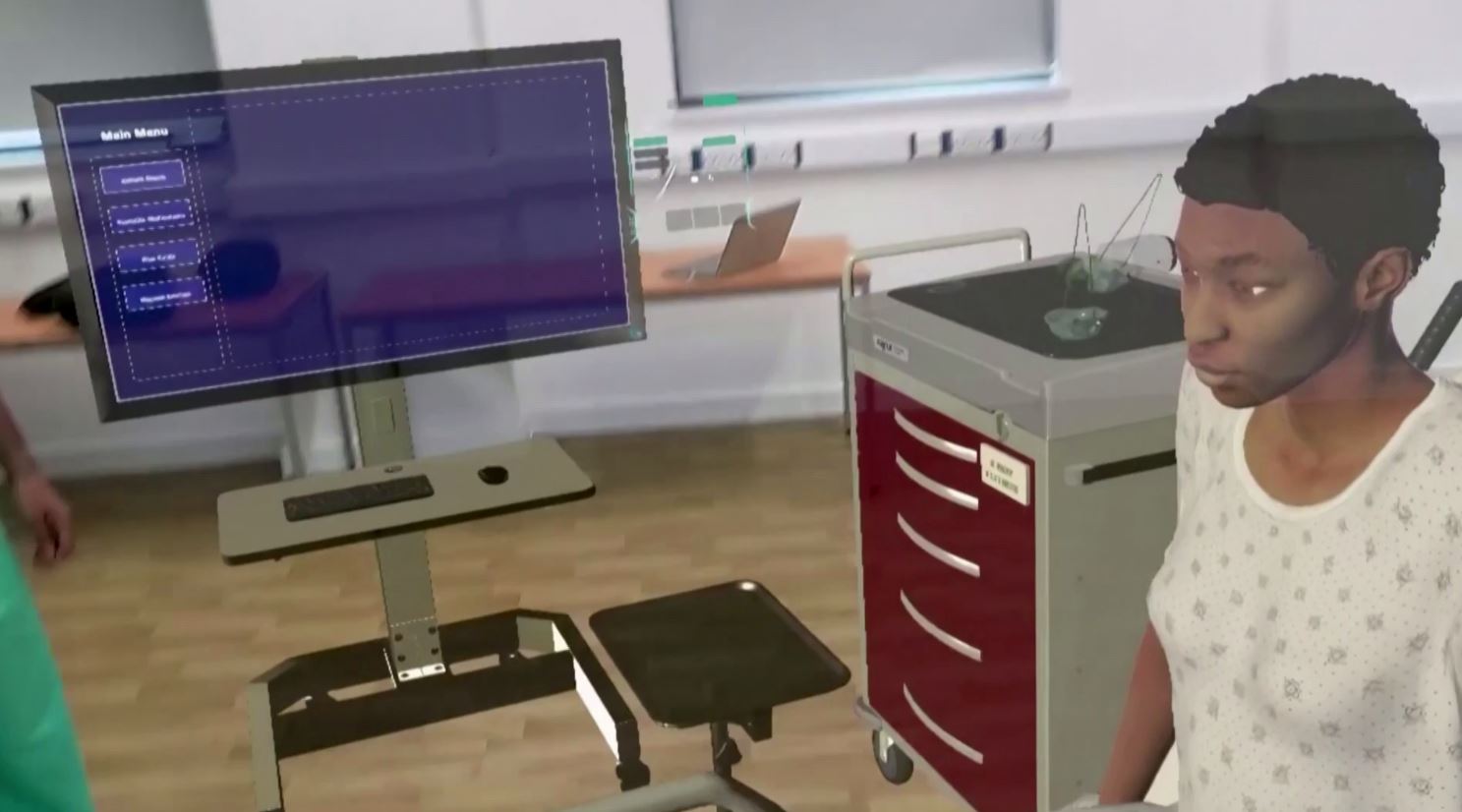CAMBRIDGE: Holograms are helping to train doctors at one of the UK’s most prestigious universities, replacing the actors who traditionally put student medics through their paces by pretending to be unwell.
The technology uses the latest in mixed reality and features a life-like holographic patient in an imaginary hospital bed, combined with any other students or teachers in the room at the time.
The instructor can change a patient’s response or introduce complications in real-time as the session is underway.
Dr. Ruby Woodward, a specialist in simulation training and immersive technologies, said that these scenarios recreate scenarios that might not necessarily be seen often but the students still need to practice. She believes that this training is a good complement to the education, but the doctors-in-training will still need to do the rounds in the ward to practice their communication skill.
The new mixed-reality training application is called HoloScenarios and is being developed by CUH in partnership with Los Angeles-based tech company GigXR.
The technology allows training to be delivered to medics, anywhere in the world with an internet connection and can be tailored to look like the resources, infrastructure, and ethnicity that they will work with when they qualify.
GigXR founder David King Lassman said that the use of this technology is a wonderful expression of where the metaverse would make sense.
The first module features a hologram patient with asthma, followed by anaphylaxis, pulmonary embolism, and pneumonia. Further modules in cardiology and neurology are in development.

























